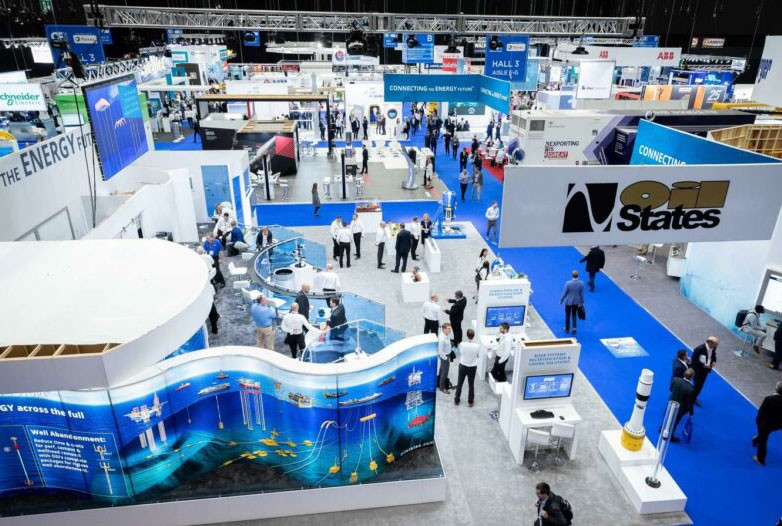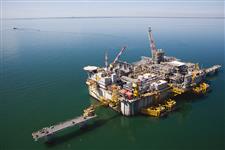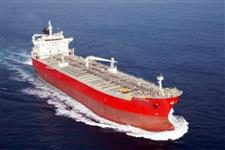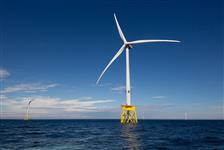
Supply Chain Gears Up for Offshore Europe to Seize Renewable Opportunities
Posted 04/09/2023 11:03
As the energy industry converges on Aberdeen for the eagerly anticipated Offshore Europe event, Sian Lloyd Rees, the appointed supply chain champion for the industry, emphasizes that companies are primed to exploit the global opportunities this event offers.
Delegates from across the globe are converging for the first in-person Offshore Europe since 2019, making it a truly international event. Ms. Lloyd Rees notes that while Offshore Europe is indeed a global event, its host city, Aberdeen, presents a unique opportunity for both small and large companies in the area to showcase their capabilities. She mentions that all available floor space for the event has already been rented, underscoring the high level of interest and excitement surrounding it. Ms. Lloyd Rees anticipates strong attendance, particularly from the Middle East.
Highlighting the global nature of the supply chain, Ms. Lloyd Rees notes that when we refer to the "UK supply chain," we are essentially discussing a global supply chain based in the UK.
Over the past decade, supply chain firms have experienced the cyclical nature of the hydrocarbon market, where work dwindles when operators tighten their budgets. This downturn has coincided with the UK's natural depletion of resources in the North Sea. Moreover, British companies have grappled with political factors such as Brexit, inflation, and the energy profits levy, causing uncertainty in work scopes. Material and service costs have also surged, with third-party costs and materials rising by up to 20%.
These cumulative challenges are stretching domestic supply chain firms thin. Despite the sector's innate resilience, there is limited capital available for research and development (R&D) to understand the energy transition fully and bounce back effectively. It has been a prolonged period of downturn for the supply chain.
Sian Lloyd Rees, apart from her role as the UK supply chain champion, also serves as the UK Managing Director for mainstream renewable power at Offshore Energies UK (OEUK). In this dual role, she plays a pivotal role in connecting supply chain firms with the energy transition.
She explains that her work with OEUK is a part of the North Sea transition deal, which includes a £16 billion investment from both the industry and the government to support the decarbonization of oil and gas, hydrogen, and carbon capture. A significant aspect of this deal focuses on the supply chain, helping companies understand the implications of the energy transition on their business.
Despite the opportunities presented by the energy transition, challenges persist in areas such as offshore wind, where inflation is impacting the sector. To overcome these challenges, the domestic energy supply chain requires visibility of future opportunities and predictability.
Supply chain firms often grapple with securing work through contracts for difference (CfD), which have faced criticism in the past. Tim Pick, the UK's offshore wind champion, has advocated for changes to CfD mechanisms to support the supply chain. Ms. Lloyd Rees concurs, highlighting the lack of certainty in projects until they reach the construction phase, making it difficult for supply chains to prepare investments.
The UK is not alone in grappling with supply chain issues impeding the transition to cleaner renewable energy. Other countries have demonstrated more effective approaches to address these problems. Ms. Lloyd Rees points to the Inflation Reduction Act in the US as a prime example of how to tackle supply chain issues.
She emphasizes that early investment is critical and cites examples from Denmark and several European countries that have successfully addressed this challenge without merely propping up local industries.
As major UK offshore wind projects send maintenance work to mainland Europe, criticism has arisen about a lack of contracts with domestic firms. Infrastructure developments like Aberdeen's South Harbour are poised to change this landscape, allowing UK ports to engage with wind developers.
Ms. Lloyd Rees notes that UK ports are actively involved and in discussions with wind developers to facilitate domestic participation in offshore wind projects.
In conclusion, while challenges exist, there is hope for domestic supply chain firms in the energy transition. The government must provide clear signals on where investment priorities lie, encouraging developers to collectively invest in the necessary infrastructure. This coordinated effort is expected to drive positive change in the industry.









